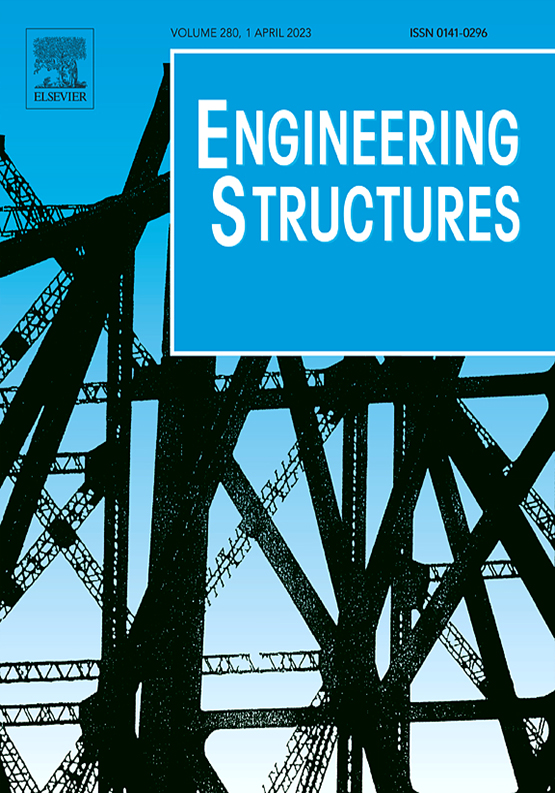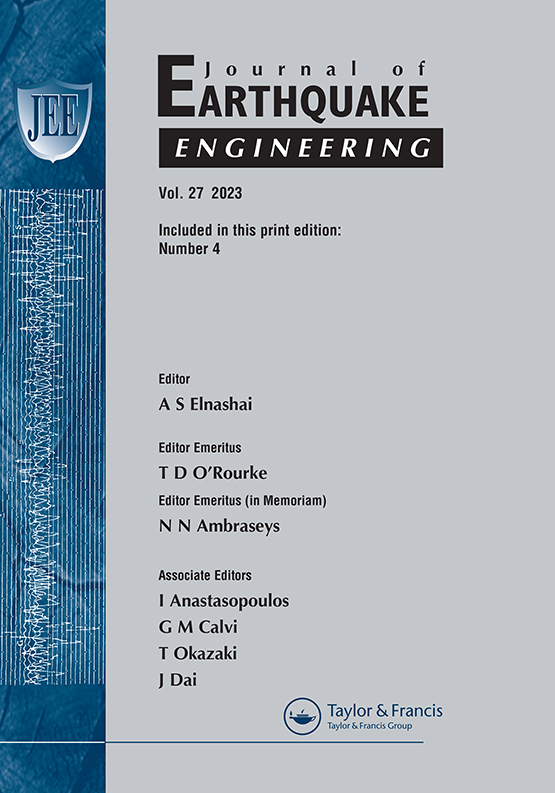Luca Sironi, Marco Andreini, Cristiana Colloca, Michael Poehler, Davide Bolognini, Filippo Dacarro, Pierino Lestuzzi, Frédéric Dubois, Ziran Zhou, and José E. Andrade (2023) “Shaking table tests for seismic stability of stacked concrete blocks used for radiation shielding”, Engineering Structures, V. 283.
Papers on blocks for radiation shielding (CERN) and experimental tests with MobiLAB
Filippo Dacarro, Simone Peloso, Davide Bolognini, Marco Furinghetti & Gian Michele Calvi (2023) “First Trial of a Mechanical System for Experimental Shake Table Dynamic Tests on Real Scale Structures”, Journal of Earthquake Engineering.
Papers have recently been published regarding seismic tests by shaking table of anti-radiation blocks used at CERN in Geneva and preliminary testing of Eucentre’s MobiLab.
The paper on anti-radiation blocks originated as part of a collaboration between Eucentre, the European Organization for Nuclear Research in Geneva (CERN), the Swiss Federal Institute of Technology in Zurich (ETH), Laboratory of Mechanics and Civil Engineering at Montpellier (LNGC), and the California Institute of Technology (CALTECH).
The paper reports the results of shaking table tests carried out at the Eucentre laboratories to study the seismic behavior of various configurations of stacked concrete blocks, that is, resting on top of each other without further constraints, commonly used by CERN as a shielding barrier against different types of radiation. The data collected at the end of the experimental campaign provided an important source for calibrating different types of numerical models, as will be described in a further forthcoming paper (“Discrete Structural Systems Modeling: Benchmarking of LS-DEM and LMGC90 with Seismic Experiments”).
The paper on the MobiLAB, written by Eucentre researchers, describes the work done to carry out the first assembly and experimental trial. The aim was not only to test a 3D multi-story frame, but more importantly to verify the efficiency and reliability of the hydraulic system and the control system of the MobiLAB itself, after a series of preliminary numerical simulations.
Eucentre’s MobiLAB is a totally independent mobile laboratory designed and built to perform in situ tests on existing buildings and structures, that is, in their actual condition of preservation and maintenance. It is capable of imposing dynamic excitations at the base, even at low frequencies, as described in a previously published paper – “Feasibility study for in-situ dynamic testing of structures and geotechnical systems”.
 Eucentre is a non-profit private law foundation whose mission is to conduct research and provide training and services in earthquake and safety engineering
Eucentre is a non-profit private law foundation whose mission is to conduct research and provide training and services in earthquake and safety engineering  Eucentre promotes science, research and innovation for the benefit of the community, offering targeted methodologies and concrete solutions for prevention, safety and resilience. It collaborates with institutions and companies to disseminate competencies for the common good.
Eucentre promotes science, research and innovation for the benefit of the community, offering targeted methodologies and concrete solutions for prevention, safety and resilience. It collaborates with institutions and companies to disseminate competencies for the common good. Eucentre conducts earthquake engineering research and risk reduction studies via laboratory testing and numerical analysis to enhance seismic performance and develop innovative solutions
Eucentre conducts earthquake engineering research and risk reduction studies via laboratory testing and numerical analysis to enhance seismic performance and develop innovative solutions  Eucentre carries out research activities in earthquake engineering and risk reduction through laboratory testing and numerical analysis, aiming to improve the seismic performance of structures and soils and to develop innovative seismic retrofitting techniques.
Eucentre carries out research activities in earthquake engineering and risk reduction through laboratory testing and numerical analysis, aiming to improve the seismic performance of structures and soils and to develop innovative seismic retrofitting techniques. The Foundation promotes diverse and high-quality training activities aimed at academic and professional contexts, with constantly updated and innovative programs and initiatives designed to meet the evolving needs of the sector and society
The Foundation promotes diverse and high-quality training activities aimed at academic and professional contexts, with constantly updated and innovative programs and initiatives designed to meet the evolving needs of the sector and society  Eucentre ensures communication aimed at informing institutions, professionals, and citizens about ongoing activities and projects, with the goal of disseminating useful and accessible content and knowledge. It contributes to promoting a shared and informed culture of prevention and resilience.
Eucentre ensures communication aimed at informing institutions, professionals, and citizens about ongoing activities and projects, with the goal of disseminating useful and accessible content and knowledge. It contributes to promoting a shared and informed culture of prevention and resilience.

